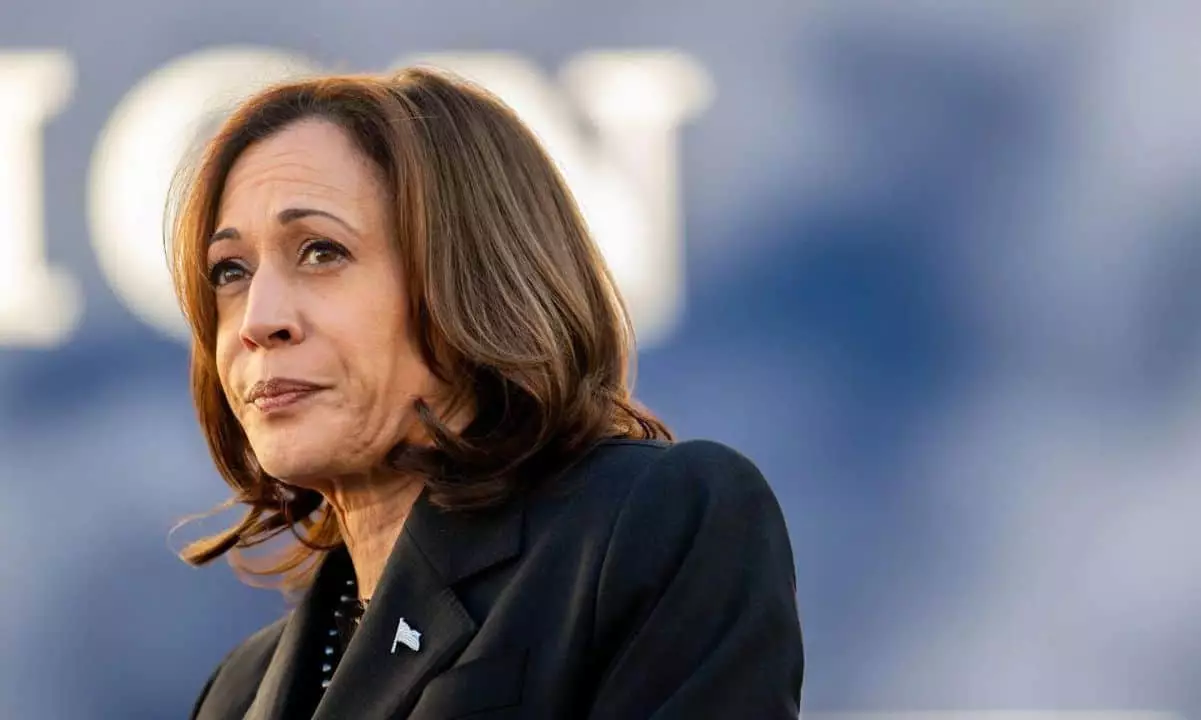In recent months, the intersection of cryptocurrency and politics has gained unprecedented attention, especially with the upcoming elections and the fluctuating stance of various candidates regarding digital assets. A notable incident involved the digital asset advocacy group, Stand With Crypto, which found itself in hot water over its assessment of Vice President Kamala Harris’s support for the crypto industry. Initially assigning her a favorable grade of “B” due to her comments at a New York fundraiser, the group soon faced backlash that compelled them to reassess and downgrade her standing on their platform.
The implications of this episode extend beyond mere politics; they highlight the scrutiny and complexity surrounding political endorsements in the rapidly evolving cryptocurrency landscape. As candidates navigate their positions on digital assets, the interest and demands of advocacy organizations like Stand With Crypto become increasingly relevant. However, the accuracy and credibility of these endorsements are put to the test, particularly when public perception varies dramatically from political rhetoric.
Stand With Crypto’s initial ranking of Harris exemplifies the often tenuous relationship between politician statements and their actual commitment to the cryptocurrency sector. Harris’s remarks about embracing innovative technologies, including digital assets and artificial intelligence, were initially praised by the group as indicative of support. However, seasoned members of the crypto community quickly contested this characterization, highlighting the Vice President’s limited history of engagement with crypto-related matters.
Notably, Harris had only made a single statement on cryptocurrencies compared to multiple declarations from her opponent, former President Donald Trump, who earned an “A” rating. This disparity sparked criticism, with Bitcoin advocates labeling her comments as little more than a neutral observation rather than a substantial endorsement of crypto innovation. This debacle underscores the challenges faced by Stand With Crypto in objectively scoring politicians, particularly when motivations and statements can be open to interpretation.
The backlash against Stand With Crypto’s grading system came from various stakeholders within the cryptocurrency community. Critics accused the organization of overestimating Harris’s level of support, suggesting that her ambiguous statements amounted to a lack of true advocacy for the crypto space. Prominent voices, such as venture capitalist @HelpedHope, highlighted the risks of crafting endorsements that serve political expediency rather than substantive support for the crypto industry.
This critical feedback prompted Stand With Crypto to reassess its grading criteria and ultimately adjust Harris’s score to reflect a more cautious overview of her stance. The group’s new policy now indicates that inadequate involvement or vague statements by politicians will warrant an assessment of “Needs more information” rather than an outright endorsement. Such a pivot illustrates how political dynamics can influence advocacy efforts and reveals the delicate balancing act required to maintain credibility and influence ultimately.
Future Implications for Crypto Advocacy
As political campaigns increasingly incorporate discussions around cryptocurrency, organizations like Stand With Crypto must navigate the fine line between supporting innovation and maintaining accountability. The evolving nature of their grading system reflects the pressure advocacy groups face in delivering credible assessments without succumbing to political bias or opportunism.
Further complicating matters is the unpredictable landscape of regulation and policy surrounding cryptocurrency. Politicians, influenced by both public opinion and industry lobbying, often tread carefully, resulting in statements that may sound positive yet lack actionable commitments. Consequently, advocacy groups should enhance their analytical frameworks to take into account not only public statements but also the historical context and implications of a politician’s track record on cryptocurrency.
The incident involving Stand With Crypto and Kamala Harris serves as a potent reminder of the necessity for clarity amid the complexities of political and economic relations in the world of digital assets. As cryptocurrency continues to shape the narratives of modern politics, advocacy groups must elevate their standards of evaluation to ensure accurate and meaningful representation. The future of crypto lobbying will hinge on the ability to foster transparency, credibility, and informed discourse among politicians, advocates, and constituents alike. It’s crucial for the crypto community to advocate for clear, consistent policies while holding political figures accountable for their commitments to innovation and regulation.


Leave a Reply